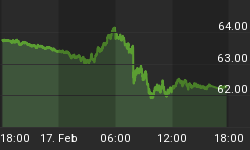India hopes it could diversify its oil suppliers under the new U.S. Administration that could relax restrictions on oil exports from Iran and Venezuela, India’s Oil Minister Dharmendra Pradhan told Bloomberg TV in an interview.
“Some geopolitical changes are there,” Pradhan told Bloomberg, referring to expected policies from U.S. President Joe Biden.
The Indian minister reiterated his remarks from last month when he said that the world’s third-largest oil importer would like to have more opportunities to work for diversifying its sources of crude, including by resuming oil imports from Venezuela and Iran under President Biden.
The Trump Administration had stepped up sanctions against Iran and Venezuela since 2018, looking to cut off oil sales from the two countries.
President Biden, however, has pledged to offer Tehran a path back to diplomacy and a return to the nuclear deal. That is, if Iran returns to full compliance with that agreement, hammered out while Biden was President Obama’s vice president.
After the sanctions on Iran and Venezuela’s oil exports were tightened in 2019 to include anyone dealing with crude from those two producers, India stopped importing oil from Iran in May 2019 and has significantly cut purchases from Venezuela.
Reliance Industries, the largest refinery owner in India and the world, stopped buying Venezuelan crude oil in June last year. Reliance Industries is not alone in shunning Venezuelan oil, fearing repercussions from Washington. India’s second-largest refiner, Nayara Energy, has also stopped buying Venezuelan crude, switching to Canadian, Kuwaiti, and Ecuadorian oil, according to Bloomberg shipping data.
Earlier this week, India’s Pradhan criticized OPEC and its de facto leader Saudi Arabia for looking to tighten the market, diminishing export volumes and driving prices for oil importers higher.
The surprise changes in the OPEC+ group policies make planning more difficult for oil-importing nations, Pradhan told Bloomberg.
India, for one, depends on imports for over 80 percent of its oil consumption.
By Charles Kennedy for Oilprice.com
More Top Reads From Safehaven.com:

















